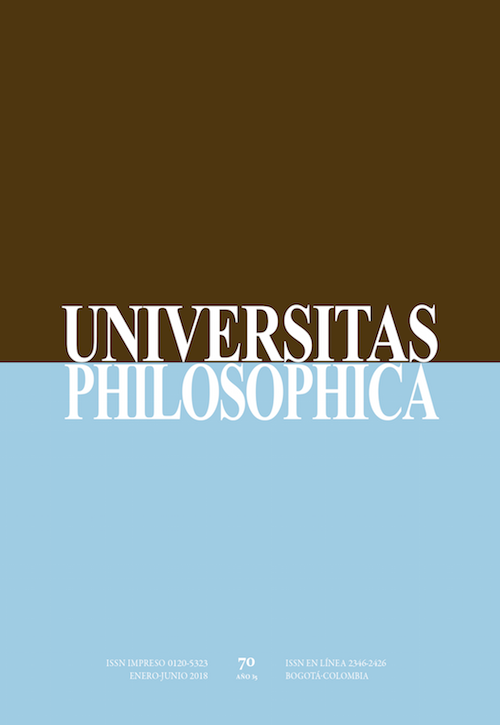Abstract
The figure of angels is present in Jewish biblical tradition and in Jewish intertestamental literature. Even though researchers speculate on the lack of a “Jewish angelology,” the angel figure plays a leading role in the administration of Heaven and Earth. From the characterization of the figure of the angels in Maimonides, this paper seeks to understand why he attempts to rationalize the angelology and the political-theological implications of that rationalization. Specifically, we are going to analyze the role of angels in the administration of the universe and their relationship with men, as well as their dispute with the heavenly power.
This journal is registered under a Creative Commons Attribution 4.0 International Public License. Thus, this work may be reproduced, distributed, and publicly shared in digital format, as long as the names of the authors and Pontificia Universidad Javeriana are acknowledged. Others are allowed to quote, adapt, transform, auto-archive, republish, and create based on this material, for any purpose (even commercial ones), provided the authorship is duly acknowledged, a link to the original work is provided, and it is specified if changes have been made. Pontificia Universidad Javeriana does not hold the rights of published works and the authors are solely responsible for the contents of their works; they keep the moral, intellectual, privacy, and publicity rights.
Approving the intervention of the work (review, copy-editing, translation, layout) and the following outreach, are granted through an use license and not through an assignment of rights. This means the journal and Pontificia Universidad Javeriana cannot be held responsible for any ethical malpractice by the authors. As a consequence of the protection granted by the use license, the journal is not required to publish recantations or modify information already published, unless the errata stems from the editorial management process. Publishing contents in this journal does not generate royalties for contributors.


